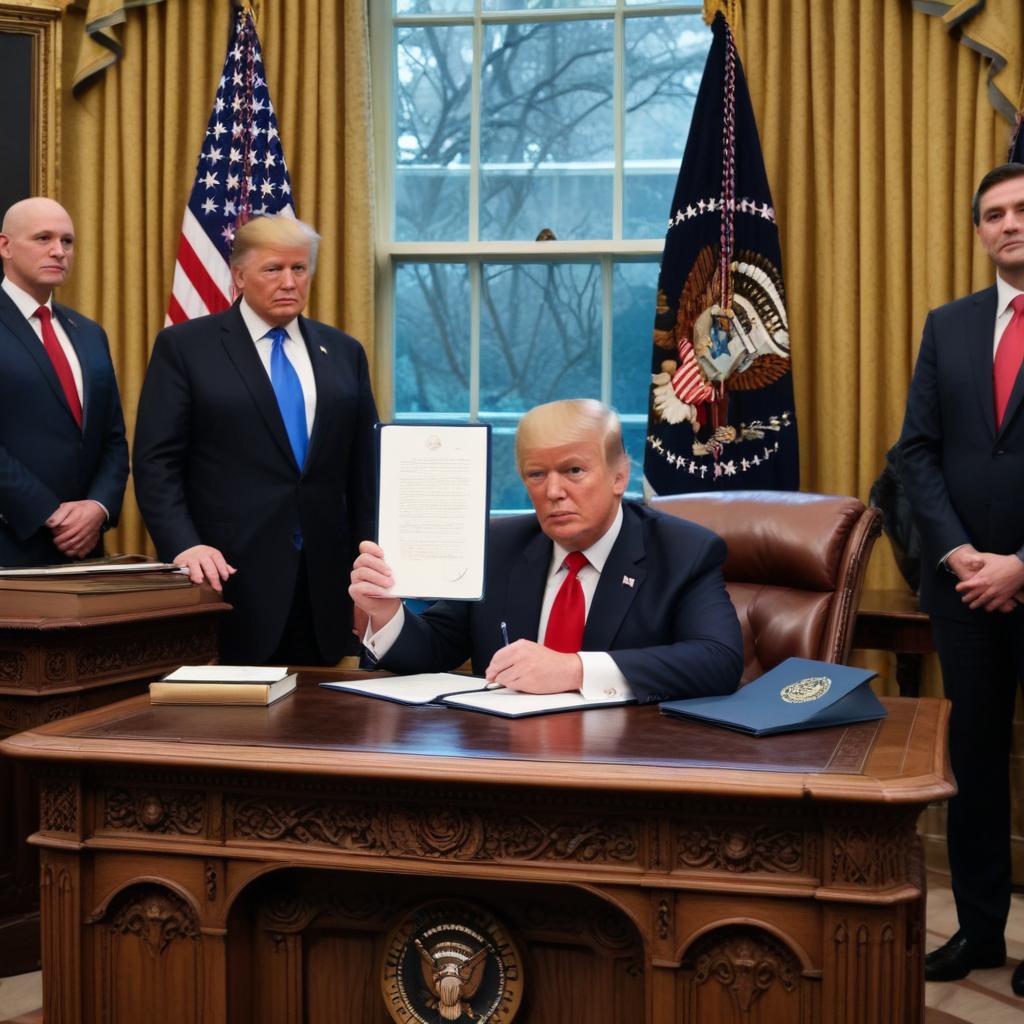President Trump signed a proclamation implementing steep increases in visa fees for skilled foreign workers and introducing a pricey 'gold card' visa for wealthy individuals, sparking immediate legal challenges.
President Donald Trump signed a proclamation that will require a $100,000 annual visa fee for highly-skilled foreign workers and introduced a $1 million "gold card" visa as a pathway to U.S. citizenship for wealthy individuals. These moves are expected to face legal challenges. The skilled worker visa fee would jump from $215, while investor visas would increase from $10,000-$20,000 annually. H-1B visas, commonly used by tech companies, are targeted by the increase. Critics argue the program facilitates the employment of overseas workers at lower wages than U.S. tech workers. Trump claimed the tech industry supports the changes, though major tech companies did not immediately respond to requests for comment. Commerce Secretary Howard Lutnick predicted far fewer H-1B visas would be issued due to the increased cost. A "gold card" visa, costing $1 million for individuals and $2 million for company sponsorships, will offer a path to citizenship. A $5 million "platinum card" will also be available, allowing 270 days in the U.S. without U.S. taxes on non-U.S. income. These cards will replace employment-based visas for various professionals. While some critics of H-1B visas welcomed the changes, others, including a former senior official at U.S. Citizenship and Immigration Services, deemed the fee increase "ludicrously lawless." Lutnick stated that the H-1B fees and gold card could be introduced by the president, but the platinum card requires congressional approval. Historically, H-1B visas have been allocated through a lottery system, with Amazon being the top recipient in recent years. Concerns exist regarding H-1B visas being used for entry-level jobs and potentially undercutting U.S. wages. Many U.S. companies contract out tasks to consulting companies that hire foreign workers, often at lower costs. In 2024, lottery bids for H-1B visas plunged nearly 40%, partly due to efforts against fraudulent applications. Major tech companies sought changes after a massive increase in bids reduced the chances of winning the lottery. The AFL-CIO, while acknowledging some improvements, called for further reforms, advocating for visas to be awarded based on wages rather than lottery.



